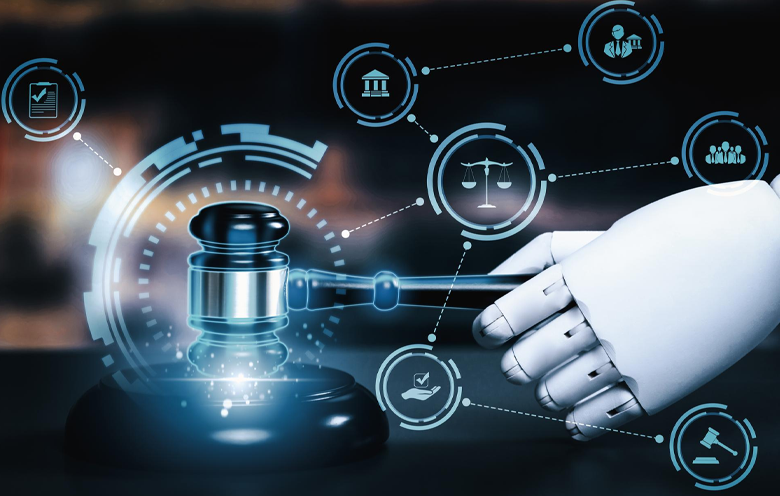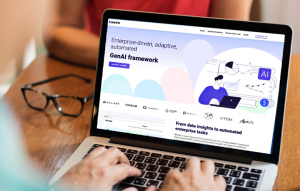In the high-stakes legal arena, every lawyer dreams of the perfect case strategy that guarantees a win. Legal professionals have one goal: delivering decisive victories for their clients. However, law professionals often find themselves confronting several critical questions:
- How can we predict the outcome of a case with greater accuracy?
- What strategies have been successful in similar cases?
- How can we efficiently manage and analyze vast amounts of legal data?
- What tactics can we employ to stay ahead of opposing counsel?
Generative AI offers solutions to these pressing questions, transforming how legal professionals approach case management and strategy optimization.
According to the MyCase and LawPay 2024 Legal Industry report, AI innovations are already being used heavily within the profession, with 42% of early adopters using them daily.
By leveraging advanced machine learning (ML) and large language models (LLMs), this technology is poised to transform how legal professionals approach their work. Generative AI in the legal industry can bring a new level of sophistication and effectiveness to legal strategy optimization. Let’s explore how generative AI helps legal professionals with legal strategy and case management.
The role of generative AI in legal strategy
Data analysis and insights generation
- GenAI helps process vast amounts of legal documents, contracts, case files, and statutes to identify patterns and correlations that might not be immediately apparent to lawyers.
- It uses natural language processing (NLP) to understand and summarize complex legal texts, extracting relevant information swiftly.
53% of respondents saw opportunities in contract analytics. – LexisNexis
Prediction and outcome forecasting
- By analyzing historical case data, GenAI predicts potential outcomes based on past precedents, helping lawyers gauge the probable success of different legal strategies.
- This predictive capability is crucial for risk assessment and strategic planning in litigation and negotiations.
Data-driven recommendations
AI systems analyze case-specific data to suggest optimal legal strategies, offering evidence-based recommendations for trial tactics, settlement options, and negotiation approaches.
How generative AI framework offers efficiency in legal drafting
Discover how generative AI is transforming contract drafting with increased efficiency, reduced errors, and cost savings. Explore real-world examples and future trends of contract drafting with AI.

Predictive analytics for case management
Challenges
- Accurately forecasting case outcomes can be challenging due to the complex interplay of historical data, judicial rulings, and legal precedents. Lawyers often struggle to predict the likelihood of success based on diverse and voluminous case details.
- Developing effective litigation strategies is difficult without comprehensive insights into successful tactics and case dynamics. Legal professionals may lack detailed analysis of litigation trends and adversary behaviors, impacting their ability to formulate effective approaches.
Solutions
Generative AI uses predictive analytics to assess historical data, judicial rulings, and legal precedents. By analyzing factors like case details, legal strategies, and judge’s preferences, AI models provide accurate forecasts of case outcomes, enabling lawyers to gauge the probability of success more effectively.
AI-driven insights identify successful tactics from similar cases by analyzing litigation trends, case complexities, and adversary behaviors. This helps legal professionals develop well-informed litigation strategies tailored to achieving favorable outcomes.
A survey by the American Bar Association found that 10% of respondents used AI for predictive coding or document analysis in litigation.
Advantages of generative AI solutions for legal case management
- Enhanced foresight into case outcomes allows lawyers to refine their litigation strategies and manage cases more effectively, improving the overall success rate.
- Data-driven recommendations on litigation strategies lead to more strategic decision-making, resulting in stronger legal representation and better chances of achieving desired results.
Benefits of generative AI for law firms
- Enhanced decision-making: GenAI can analyze historical case data, identify trends, and predict case outcomes, helping lawyers make informed decisions.
- Increased efficiency: Automating time-consuming tasks such as document review, legal research, and case analysis allows lawyers to dedicate more time to strategic planning and client interaction.
An impressive 95% of individuals who have integrated AI into their work processes report saving time each week on legal tasks.
- Cost reduction: By streamlining processes and reducing manual labor, GenAI can lower operational costs.
- Improved accuracy: Advanced algorithms minimize human error, ensuring that legal documents and strategies are precise and reliable.
- Competitive advantage: Firms that adopt GenAI technology can stay ahead of the curve, offering cutting-edge services that differentiate them from competitors.
Let’s explore the working of generative AI framework, Needle, for legal strategy
Real-world uses of generative AI in the legal industry
Allen & Overy LLP
Headquartered in London, England, Allen & Overy LLP is a British multinational law firm with over 500 partners and 5000+ employees. Allen & Overy has partnered with Microsoft for their generative AI solutions to revolutionize their legal services.
- Document automation: The company uses generative AI tools to automate the creation of legal documents, reducing the time and effort required for manual drafting.
- Contract analysis: AI tools help the company in analyzing and reviewing contracts, ensuring accuracy and compliance with legal standards.
- Predictive analytics: AI models predict case outcomes based on historical data, aiding in strategy development.
Addleshaw Goddard LLP
This international law firm is based in London, England with partners in 19 countries. They use tools like ChatGPT, CoCounsel Core, Spellbook, and Microsoft Copilot alongside its own internally developed AGPT platform.
- Client advisory: The company uses generative AI for legal documents, to gain clarity on the contract terms.
- Legal advisory: They use GenAI to establish best possible solutions for their clients, legal research, advising on policies, and training the in-house legal teams.
MacFarlanes LLP
Based in London, England, MacFarlanes LLP is the 28th-largest and 2nd-highest among UK-based law firms. They leverage HarveyAI, the generative AI tool designed specifically for legal work.
- Document review and analysis: Harvey helps the company to review, analyze, and summarize legal documents.
- Drafting and legal research: The generative AI solution for legal work provides efficient drafting of documents and answering general legal questions.
Suggested: How generative AI solutions are helping the aviation industry to take a flight towards continuous business success?
Embrace the future of AI for law firms: Harnessing GenAI for legal excellence
With the power to predict case outcomes, refine litigation strategies, and automate mundane tasks, GenAI propels law firms into a new era of efficiency and precision. The stakes are high, and generative AI tools can help you achieve a competitive edge.
One such GenAI framework is Needle by Softweb Solutions. With Needle, you can revolutionize your practice, enhance your strategic prowess, and lead with innovation. The future is here – don’t just adapt, lead. Get on an exclusive 30-mins free consultation call with our generative AI consultants for expert guidance.









